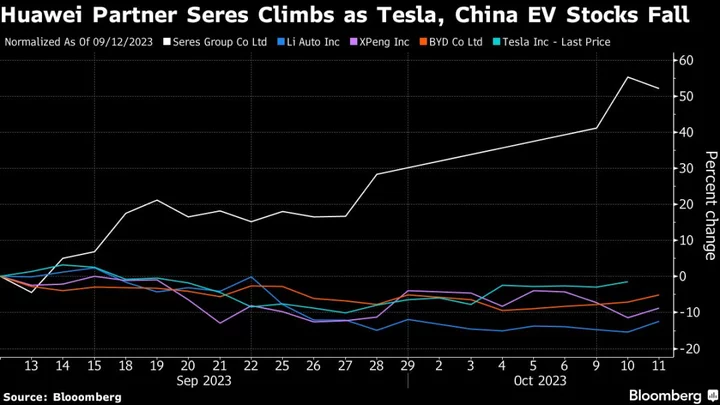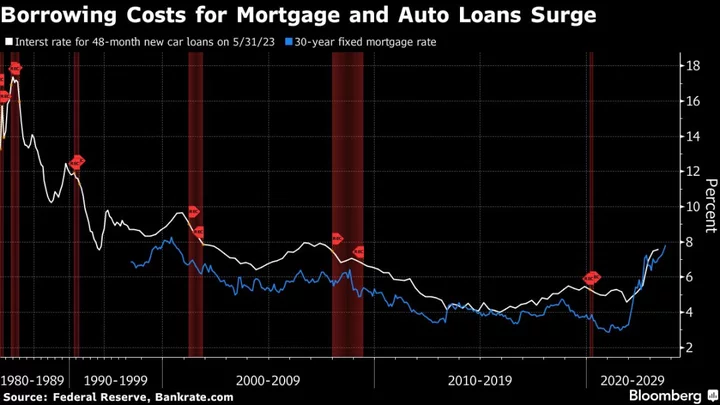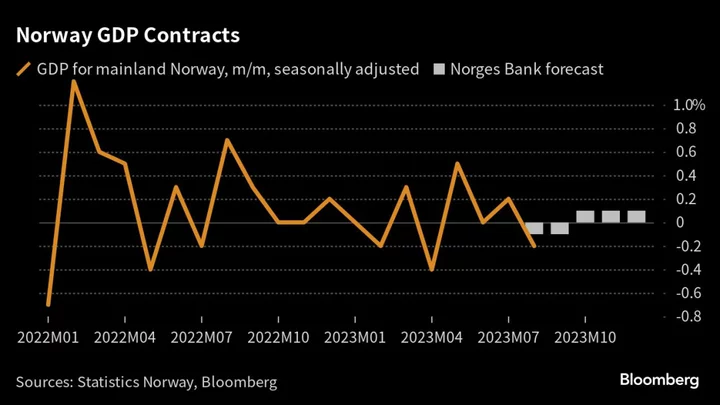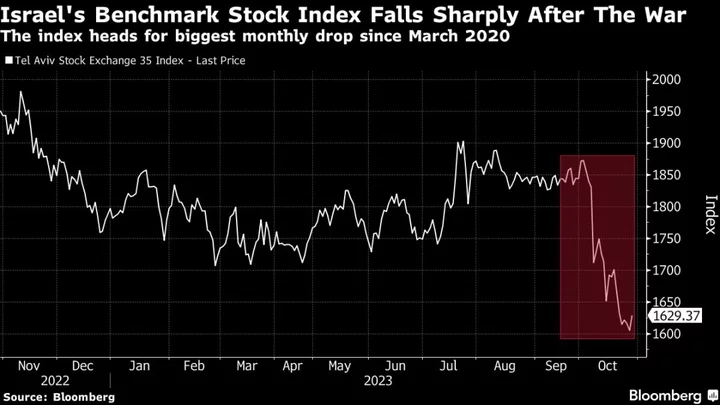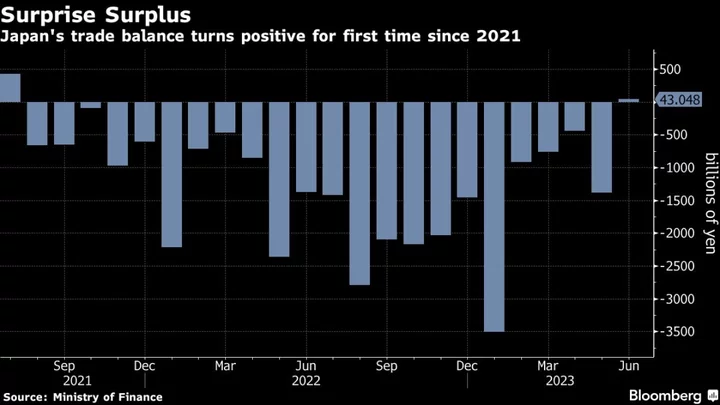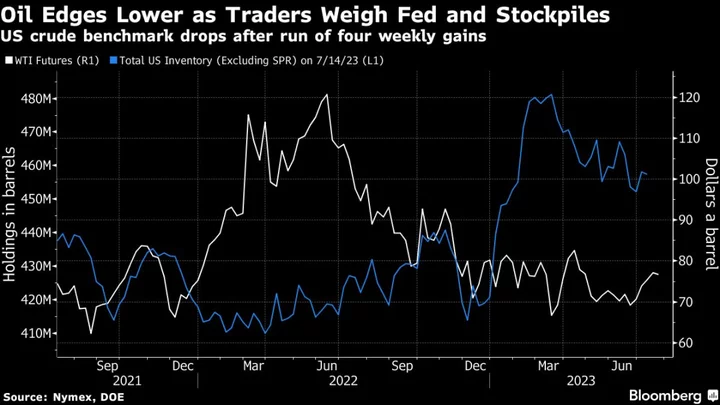Huawei Technologies Co. has scored a hit in China with its latest electric vehicle, making its manufacturing partner Asia’s top stock over the past month and giving Tesla Inc. and other rivals reason to take notice.
More than 50,000 orders were placed for the revamped Aito M7 in the first 25 days since its September launch. Analysts are hailing the electric SUV’s early success, attributed in part to Huawei’s strong lure among consumers in China where it has a large network of retail shops.
Stock investors are cheering as well, driving shares of Huawei’s automaker partner Seres Group Co. up more than 50% since the M7’s release, making it the best performer on the MSCI Asia Pacific Index. That compares with declines in Tesla and Chinese EV makers including BYD Co. over the same span.
“The success of Huawei-backed Aito M7 bears no doubt,” Morgan Stanley analysts including Cindy Huang wrote in a note. “Investors should increasingly focus on the potential headwinds” from other Huawei EVs due to be released later this year, they added.
China is the world’s largest market for electric vehicles, with EVs accounting for 38% of the nation’s new-car sales in August. And the nation’s homegrown automakers have made large gains on the global stage as well, with BYD now poised to overtake Tesla in sales volume.
After surging earlier this year, however, Chinese EV stocks have slumped in recent months amid concerns over valuations. Competitive threats have also deterred investors, and evidence of unlisted Huawei making inroads could delay a rebound.
“Potential victims” of the M7’s order wins include Li Auto Inc.’s L7/L8, Tesla’s Model Y, XPeng Inc.’s G6/G9 and BYD’s Tang, according to Morgan Stanley’s Huang. The Aito car is priced starting at 249,800 yuan ($34,235).
Investors need to monitor launches of the Aito M9 and another Huawei-backed vehicle the Luxeed S7 before year-end, as “stocks would react first” before conclusive sales data, Huang wrote.
While known to global tech watchers for its position at the center of US-China tensions, Huawei has a positive image among the Chinese public, often seen as a symbol of the nation’s self-reliance in technology. After a number of years developing EV know-how, its established footprint of mobile phones shops is seen giving it an advantage in attracting consumer traffic.
“The new M7 is gaining traction due to its upgraded, Huawei-developed ADAS and connectivity technologies, competitive pricing as well as greater showroom traffic brought by Huawei’s new Mate 60 smartphone,” said Joanna Chen, an analyst with Bloomberg Intelligence. The Shenzhen-based company’s R&D capabilities, brand cachet and expansive sales network all help, she added.

